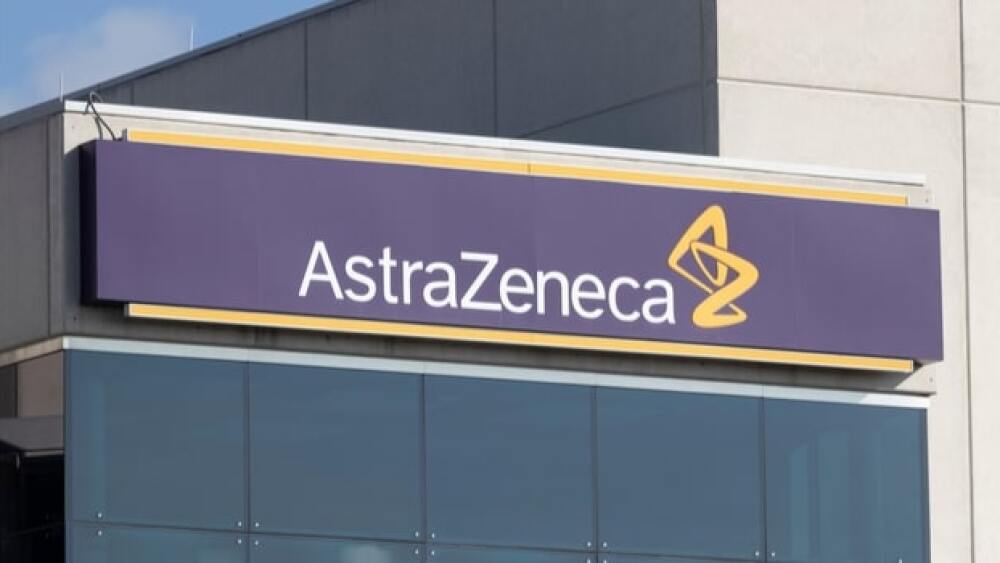DUO-E trial data show AstraZeneca’s Imfinzi, either alone or in combination with Lynparza, boosts progression-free survival in endometrial cancer.
Pictured: AstraZeneca sign on building/Courtesy of Jonathan Weiss/Shutterstock
Friday, high-level findings from the Phase III DUO-E study showed AstraZeneca’s Imfinzi (durvalumab), either alone or in combination with its Lynparza (olaparib), improved progression-free survival in patients with newly diagnosed advanced or recurrent endometrial cancer.
Though AstraZeneca did not provide detailed data in its news release, the company promised to do so at an upcoming medical meeting. AstraZeneca will also present these data to regulators in order to “bring this innovative IMFINZI and LYNPARZA combination to endometrial cancer patients as soon as possible,” Susan Galbraith, AstraZeneca’s executive vice president of oncology R&D, said in a statement.
DUO-E is a randomized, double-blinded, placebo-controlled study with nearly 700 enrolled patients. Imfinzi was initially given in combination with platinum-based chemotherapy (consisting of paclitaxel and carboplatin), followed by a maintenance regimen of Imfinzi alone or combined with Lynparza.
The study’s primary outcome was progression-free survival (PFS). Compared with standard-of-care chemotherapy, both maintenance arms treated with Imfinzi showed statistically significant and clinically meaningful improvements in PFS. Clinical benefit was greater among patients given Imfinzi and Lynparza.
One of the study’s key secondary efficacy measures is overall survival, though data were still immature at the time of analysis.
As for safety, DUO-E recorded a tolerability profile broadly consistent with what had previously been reported in prior trials. Adverse events that arose in the study were also consistent with the known side effects of the individual medicines.
“These exciting data demonstrate durvalumab immunotherapy can significantly delay disease progression for patients with endometrial cancer and the addition of the PARP inhibitor olaparib can improve the benefit further,” Shannon Westin, principal investigator of DUO-E, said in a statement, adding that this treatment combo could result in new treatment approaches and leading to better outcomes.
Friday’s data drop from DUO-E comes a few months after GSK and Merck posted their own Phase III findings for their cancer drugs.
In March 2023, interim data from the Phase IIII RUBY showed that induction and maintenance with GSK’s Jemperli (dostarlimab), in combination with standard-of-care chemotherapy, cut the risk of progression or death by 36% in the overall study population. This effect was stronger in mismatch repair-deficient (dMMR)/microsatellite instability-high patients, resulting in a 72% reduction in such risk.
These data were presented at the 2023 Society of Gynecologic Oncology (SGO) Annual Meeting on Women’s Cancer.
At the same medical congress, Merck presented findings from the Phase III NRG-GY018 study, showing that its PD-1 inhibitor Keytruda (pembrolizumab) improved PFS by 70% in dMMR patients. Meanwhile, in those who were MMR-proficient, Keytruda cut the risk of disease progression or death by 46%.
Tristan Manalac is an independent science writer based in metro Manila, Philippines. He can be reached at tristan@tristanmanalac.com or tristan.manalac@biospace.com.






